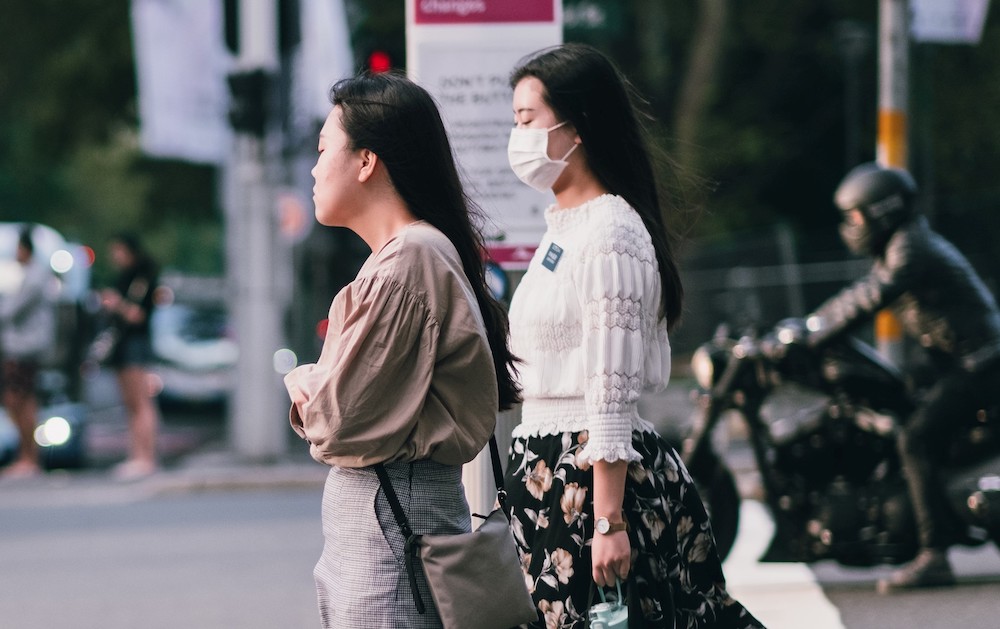Libertarian Choice, Moral Relativism, or Social Obligation: The World of COVID-19

Over the past couple of months, the world has been thrown into an unprecedented situation unlike any circumstance we have ever encountered. While our daily lifestyles have been altered in unimaginable ways, we are increasingly aware that reconciling our lost sense of normalcy in society depends upon our adherence to safety guidelines and protocols. Though the intent and the rationale behind these guidelines are not hard to discern, there is no shortage of criticism and negative responses – much of which is argued from a perspective of exercising our own freedoms and defending our own dignity.
With so many changes and new policies that significantly affect our daily lives coming forward, should our expectations around human rights and dignity remain constant?
On a superficial level, the request that people wear masks and observe social distancing might not seem unreasonable or excessive, but these requirements do not allow citizens to act in ways they once were able to. The new requirements have uprooted the status quo. What is even more confounding is that the values of freedom and dignity being enlisted by protesters as they balk at these precautions and guidelines are the same that are being used by those who defend the implementation and enforcement of such public health safety measures. Are human rights and concepts around human dignity so relative that they lose any persuasive power? What is undeniable is that with the implementation of emergency public health protocols, questions do arise as to whether adherence to such new standards means sacrificing certain cherished individual rights.
There are multiple ways to view the overall situation, but the result is that the unavoidable societal shift in what is “normal” is inherently impacting how we, as a community and as individuals, feel it is appropriate to act. Times have clearly changed; 8 months ago, someone wearing a mask in the grocery store would be almost unheard of. The paradigm has now flipped; the person not wearing the mask is not only the easily spotted outlier, but also the pariah. “Normal” behavior is not what it used to be, but what does this mean in a moral context?
For individuals who rely on claims of “dignity and human rights” as their justification to act on their own accord in defiance of the newly imposed requirements and recommendations, several controversial ideas emerge. How do we as a group – or each individual – determine what specific point of alignment with the new requirements and guidelines would unacceptably inhibit their individual freedoms? Is this really still a personal choice, or is this an instance where the views of the larger society ought to prevail?
For those who insist on defiance of the new public safety measures, they retain no plausible excuse to plead ignorance regarding the potentially negative (and even dire) consequences of such defiance to self and others (especially those at greatest risk due to their vulnerability factors); these are now widely described in the media. Given this reality, does the conscious choice of those who are more militantly libertarian (or distrusting of reliable scientific data) in rejecting these new requirements and guidelines – i.e. eschewing the mask and the social distance – pose a clear and present danger to the human dignity and intrinsic rights and values of other citizens who have instead chosen to abide by these public health (hence communal) guidelines? Whose human dignity assertion is the weightier?
Our assertion of what we each hold to be priority moral values, and our ability as individuals to exercise certain freedoms, are fundamentally reliant on an implied (and to some extent explicit) form of social contract with the society around us. While under the “old normal”, social interactions would look different than they do today, the “new normal” with its strong moral argument supporting conformity to precautionary measures responsive to the risks of the pandemic, inevitably alter society’s perspectives on what freedoms and values we have a moral and legal right to demand and to exercise.
Even though we should start with the default assumption that we have the freedom to act as we please, personal freedoms have limits. Some conduct needs to be considered in the context in a strongly utilitarian sense – what is best for the most. In ignoring public health mandates responsive to the scientifically determined risk factors of the novel coronavirus now ravaging the world, we are now dealing with matters of life and death. This level of risk is significantly higher on the threat yardstick than the concerns of modesty and public health nuisance that led beachfront stores to require shirts and shoes for entry. Those same stores, restaurants, theaters, and public facilities – to the extent that they feel safe to operate at all – have a strong moral obligation to the larger community to exercise that discretion with the requirement of a mask. Not all of them do, but there is a strong moral argument that they ought to.
So why is it different now? The new changes fall along a continuum of rights and freedoms expectations. Unlike imposing an obligation to wear a shirt in a store near the beach, the requirements of a mask and social distancing – something completely uncommon and unfamiliar for the general public prior to the pandemic – now does take away a freedom and a liberty that individuals once had. While we are right to defend our freedoms, and our legal and human rights, there are moral limits.
Beyond the relative values and beliefs of many who have chosen – individually or as a group – to ignore or downplay the threat and significance of this pandemic, factual data and medical expertise demands a rational response. Morality is fundamentally grounded in rationality, not in personal choice divorced from responsibility for consequences to self and to others. For us to move forward as a nation and on an international level, it is crucial for all of us to act beyond perceived but unreasonable claims of personal choice and benefit. We have a strong moral obligation to respond to the existential threat of this pandemic with both reason and with respect for the dignity of everyone on the planet. We, universally, therefore ought to respect these proposed guidelines and what they imply for each individual’s dignity, so that we can in time progress beyond the ramifications of COVID-19.
The same dignity that we each feel called to protect is the very same dignity that is being called into question to enable the fulfillment and utilization of safety protocols.
By Nicole Pomerantz



Leave a Comment